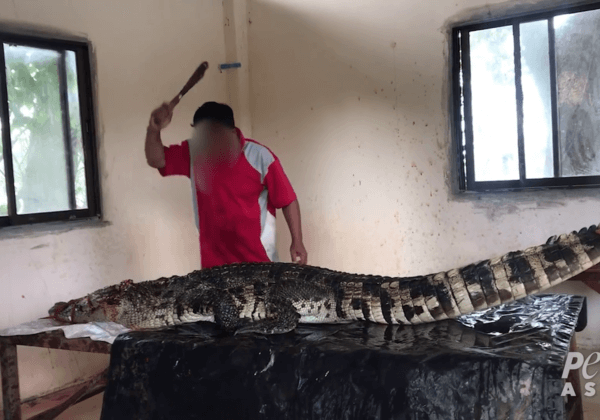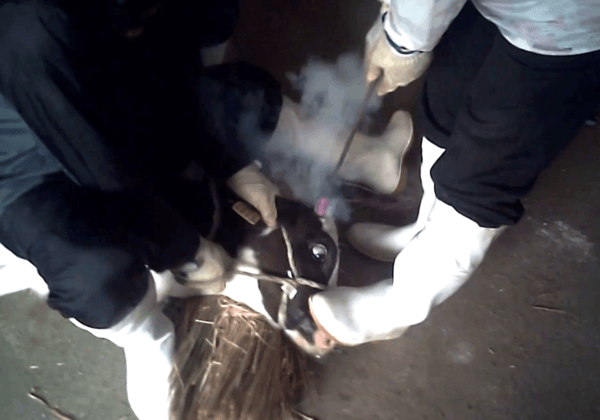Whale off Thailand’s Coast Dies After Swallowing Over 80 Plastic Bags
Shocking photos from Thailand are showing the grim effects of litter on animals.
After a whale who was found barely alive in a canal near Thailand’s border with Malaysia passed away, veterinarians carried out a postmortem examination of the animal, and what they found was shocking: Over 80 plastic bags and other pieces of plastic waste, weighing nearly 8 kilograms, were found in the whale’s stomach. According to reports, the animal vomited five plastic bags before he or she died.
The chief of Thailand’s Department of Marine and Coastal Resources has explained that the whale likely mistook the plastic waste for food.
More than 17 pounds of plastic found in stomach of dead whale in Thailand. https://t.co/tANnuZpAVP pic.twitter.com/4AC48JdxHV
— Slate (@Slate) June 4, 2018
Whale dies in Thailand after swallowing 80 plastic bags
Read more at https://t.co/CSIR3gUb9X pic.twitter.com/dD4An8AyiA— The Star (@staronline) June 3, 2018
Littering hurts all animals—not just those on land.
Sadly, this whale’s story isn’t unique or even uncommon. These animals have been discovered all over the world with plastic garbage inside their stomachs. Scientists also have evidence that over half of all sea turtles have ingested plastic.
While some companies are working to make positive changes for marine animals affected by litter, the extent to which plastic has entered ocean ecosystems—and the food chain—is so great that it still hasn’t been fully analyzed.
What You Can Do
You can start making a difference right away by taking reusable shopping bags with you every time you head to the store, instead of using the plastic or paper ones offered at the checkout counter.
Please, don’t ever litter. Always properly dispose of trash by keeping all garbage in tightly sealed, chew-proof containers; rinsing out cans and putting the tops inside so that they won’t cut an animal’s tongue before crushing the top closed; fully breaking apart plastic six-pack rings; and cutting open empty cardboard and plastic containers so that small animals can’t get their faces or heads trapped inside them.
Animals of all kinds often mistake trash for food or shelter. Please help by properly disposing of other people’s trash, too, when it’s been left on the ground. Your actions could mean the difference between life and death for an animal.








